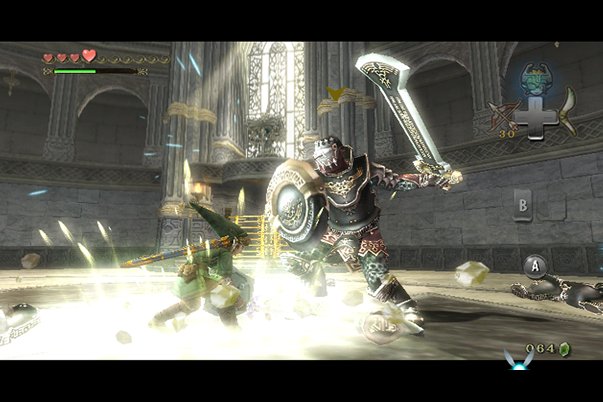Is that it?
Do gamers still want 60-hour epics? Or do good things really come in small packages?
How long should a game be? It's an impossible conundrum, like asking the length of the proverbial string. But therein lies our problem; we keep hearing sob stories from developers who claim their publisher overlords, blinded by statistics and spreadsheets, force them to implement extra modes and levels to artificially inflate a game's length. Worse still, this attitude seems to have filtered down to many gamers, who feel short-changed if their newest acquisition isn't large enough to span three time zones.

Above: The Legend of Zelda: Twilight Princess
The root cause is obvious - games cost a heck of a lot more than CDs or films. Hence, consumers are right to expect value for money from their games - the problem is determining what that means, exactly. So when Shigeru Miyamoto comes out to reiterate his - and in his eyes, your - desire for shorter games, as he did by claiming "there are fewer people who are interested in playing a big role-playing game like Zelda," it's only natural that it furrows the brow of disconcerted gamers who can only see game prices going up, up and away. But the thing is, Miyamoto is dead on - it's just that his message is muddled.
The problem "epic" titles such as Zelda have is with pacing. It's not that people don't want to play Zelda; it's that they don't want to play Zelda for a second time. Only the strongest of RPG storylines merit a second play-through (we're looking at select Final Fantasy titles here), and even then, it's a small proportion of the fan base than can bring themselves to do it. For most people, the prospect of starting up a second Golden Sun save file is enough to bring them out in a cold sweat.
Sign up to the GamesRadar+ Newsletter
Weekly digests, tales from the communities you love, and more


